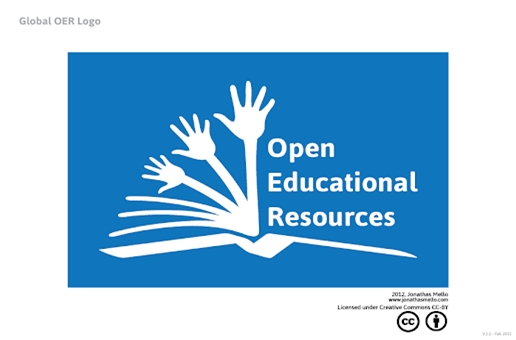Open educational resources
The teacher very often prepares a certain lesson by working for several hours, but often this work takes several weeks or months. It is a pity that this effort is only used once or several times a year. If the result of the teacher's work is an electronic file, then in the age of the Internet, the teacher can share it with other teachers.
In return, this teacher can use similar products made by other teachers.
This is how open educational resources can be created.
Open Educational Resources (OER) - a common name for any educational resource that is fully openly accessible through free licensing or transfer to the public domain and made available through any information and communication technology (Wikipedia)

In Poland, the idea of creating Open Educational Resources is being developed (among others) by the Coalition for Open Education (the description of this organisation was made on the basis of its website, including by quoting selected excerpts)

The Open Education Coalition was established by 4 institutions representing education and science: The Modern Poland Foundation, ICM UW, Polish Librarians Association and Wikimedia Poland Association. Each year more institutions and organizations join the Coalition. Currently, i.e. ( March 1, 2020) the Coalition is formed by 40 entities.
The mission of the Open Education Coalition is to support the creation of open educational, scientific and cultural resources and to promote good practices and tools related to them.
Open educational, scientific and cultural resources presented by the Open Education Coalition are the products of broadly understood social activity. They are made available in a way that guarantees free and free access for everyone, the right to copy, reuse: to process, modify and remix for any purpose, supporting the individual development of man and our communities.
Education, science and culture based on open resources equalizes opportunities in lifelong learning, democratizes knowledge, facilitates its dissemination and development; builds civil society and social capital, influences the innovativeness of the world, and at the same time facilitates the use of various resources by those who cannot afford it, gives them social advancement'.
On the subpage of this portal "Coalitioners' Projects" there are links to a very rich set of open educational resources from education, science and culture.
http://koed.org.pl/?page_id=6505&lang=pl
We particularly recommend the "Free Reading" section. It is an internet library run since 2007 by the Modern Poland Foundation. Its resources include classical works of Polish and world literature, most of them in Polish, as well as contemporary works made available under a free licence. Really, there is a lot to read and listen to, because a certain number of works are performed in a sound version.
Lithuanian readers will find here famous authors such as "Vincas Kudirka, Antanas Baranauskas, Antanas Kriščiukaitis-Aišbė, Mykolas Palionis or Adomas Mickevičius (!).
Unfortunately, no works in Latvian language or written by writers from this country have been found in this collection (let's add that it has not yet been found).
https://wolnelektury.pl/katalog/
In the section MEDIA EDUCATION there is an educational service containing over 200 scenarios, exercises and materials for media education.
Open educational resources in the field of READING EDUCATION are still to be developed.
A significant number of open educational resources in the field of reading education (or links to them) can be found on the website of the Centre for Education Development in Warsaw, which in the years 2014 -2018 was intensively active in this area.
Link to these resources
https://www.ore.edu.pl/2018/03/pozytywnie-zaczytani/
A large number of open educational resources can also be found on the SCHOLARIS education portal, created by this institution.
After entering the slogan "reading", 140 different types of resources are shown, but a thorough check of them sometimes indicates a complete lack of connection with reading education, there are also recurring resources.
Participants in this project will develop at least 50 open illustrating:
1) teaching reading skills in lessons in various subjects,
2) strategies for popularizing reading books in schools, kindergartens and among adults,
3) methods of raising future parents to develop reading interests of their own children,
4) promoting valuable literary works, including authors from Poland, Lithuania and Latvia.
The Open Educational Resources developed by project participants in the national languages will be translated into Lithuanian, Latvian, Polish and English.
They will gradually appear on this website, with the largest number of them being expected to be shown in spring 2022.
We will attempt to place them on other educational portals in Lithuania, Latvia and Poland.
We hope that the OPEN EDUCATIONAL RESOURCES made by the participants of the project will be useful for conducting reading education in many schools in the partner countries and will improve readership.
Increasing this activity is necessary to provide our children with the right conditions for social development and our countries with sustainable economic development.

